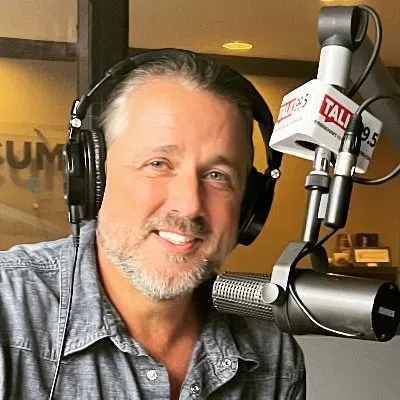World leaders are preparing their annual United Nations speeches for late September.
This comes as the United States and others have taken stock and cut financial support for such multilateral organizations — places where countries meet on shared problems.
So, speechwriters are struggling with the big question: Is the UN pulling its weight, or is it merely getting heavier all the time?
Multilateralism as the “go to” device in foreign relations has been losing market share.
Why?
The perceived waste and ineffectiveness of an overhead-heavy United Nations — along with populism, nationalism, and protectionism in some countries — has lowered the foot traffic to multilateral organizations.
Multilateral organizations might be revealing a life cycle of their own.
They are yesterday’s white elephant supermalls abandoned ignominiously for no-nonsense, one-stop-shop options: less bricks-and-mortar and more targeted deliverables from the multilateral organization marketplace.
To maintain their value proposition, multilateral organizations must pivot away from appearing busy to being purposeful, accountable, and fit in the contemporary geo-political landscape.
This will reward value where it can be identified for supporting the will of its stakeholders above the career ambitions of the organizations’ staffs.
So, whether the UN is weighty or merely heavy has been on President Trump’s mind since resuming his administration in Washington, D.C.
He reminded that the United States helped found the United Nations after World War II to prevent future global conflicts and promote global peace and security. “But some of the UN’s agencies and bodies have drifted from this mission and instead act contrary to the interests of the United States while attacking our allies and propagating anti-Semitism,” he observed in early February.
Although enticed by a frustrated U.S. Congress proposing complete withdrawal from the UN, Trump instead countered that the UN “has great potential, and based on the potential, we’ll continue to go along with it. But they’ve got to get their act together.”
So, exactly where does lie the UN’s potential?
Are its bureaucrats committed to support its 193 Member States with an urgent resolve and game plan to make the UN great again? Or has the organization fallen to a deep state pulling the world into its bureaucratic black hole?
To figure this riddle, Trump ordered a 180-day review of “all international intergovernmental organizations of which the United States is a member and provides any type of funding or other support, and all conventions and treaties to which the United States is a party, to determine which organizations, conventions, and treaties are contrary to the interests of the United States and whether such organizations, conventions, or treaties can be reformed.”
This will provide insight on how much to friend or un-friend the UN in public.
But, such a report risks betraying itself as a one-off term paper.
Its snapshot framing is too limiting.
The subject matter has an encyclopedic scope that requires widest-angle lensing and continuous exposure and development.
In other words, the matter of assessing our national stakes in multilateral organizations and agreements is not a polaroid but a living art form. It must go beyond the color-by-number approach of congressional appropriators getting budgets out the door once a year.
Such continuous assessment calls for a truly “results-based” methodology on the central question: Does U.S. participation in multilateral organizations make us stronger, safer, and prosperous?
Such routine, iterative analysis is decades overdue.
It needs its own “Wall Street desk” factoring multi-stakeholder equities and involvements.
As if analyzing the automotive industry, the food industry, or the banking industry, a dedicated effort must be made to analyze the “multilateral organization” industry.
Recommendations to buy, hold, or sell national stakes in such mutually owned bodies are needed frequently and in real time, available 24/7.
The ultimate question is not between multilateralism and nothing else.
Rather, it’s between accountable, fit-for-purpose shared machinery and increasingly irrelevant multilateral organizations.
So, beyond the customary convening of countries on shared problems, additionally the new multilateralism would feature feedback loops for continuously monitoring, evaluating, and improving a multilateral organization’s performance.
They would be generated in Wiki-like fashion from the relevant stakeholder cohort.
These feedback loops must stretch far beyond the duration of a news cycle. They must grow in size to the circumference of the earth and be in continuous rotation, as well.
Why?
Because the UN’s “marketplace” spans all time zones and occupies every latitude.
Trump’s review of the UN will likely reveal U.S. foreign policy views about the utility of participating in multilateral bodies, especially at this moment of deglobalization in the air.
But it is now weeks past its deadline.
There are no leaks or glimpses into its findings.
It seems that we must wait for the U.S. speech at the United Nations on Sept. 23.
A hint sooner rather than later would help everyone, such as leaders wanting to amplify this wavelength as well as stakeholders dissatisfied with a top-heavy UN missing in action on most any international crisis of the day.
To complement the president’s review and to provide on-demand market intelligence on the multilateral organization industry, I’m collaborating with others to describe, explain, and operationalize the new multilateralism.
This effort jibs on the same wind moving the U.S. and other countries to re-assess their 20th century multilateral organizations fitness for an increasingly and differently networked world going forward.
It’s meant to provide the stage with both a script and a playbook.
This would include tailored metrics, more qualitative than quantitative, to evaluate multilateral organizations’ performance.
Bespoke blockchain tools to document the organization’s compliance and performance accountability would engender trust in their capacities.
Such innovative indicators would assess multilateral organizations, the distressed properties that they have become, and suggest when stakeholders might buy, sell, or hold such “multilateral collateral.”
Hugh Dugan served as Special Assistant to the President and Senior Director on the National Security Council for International Organization Affairs in the first Trump Administration.? Read Hugh Dugan’s Reports — More Here.
© 2025 Newsmax. All rights reserved.






